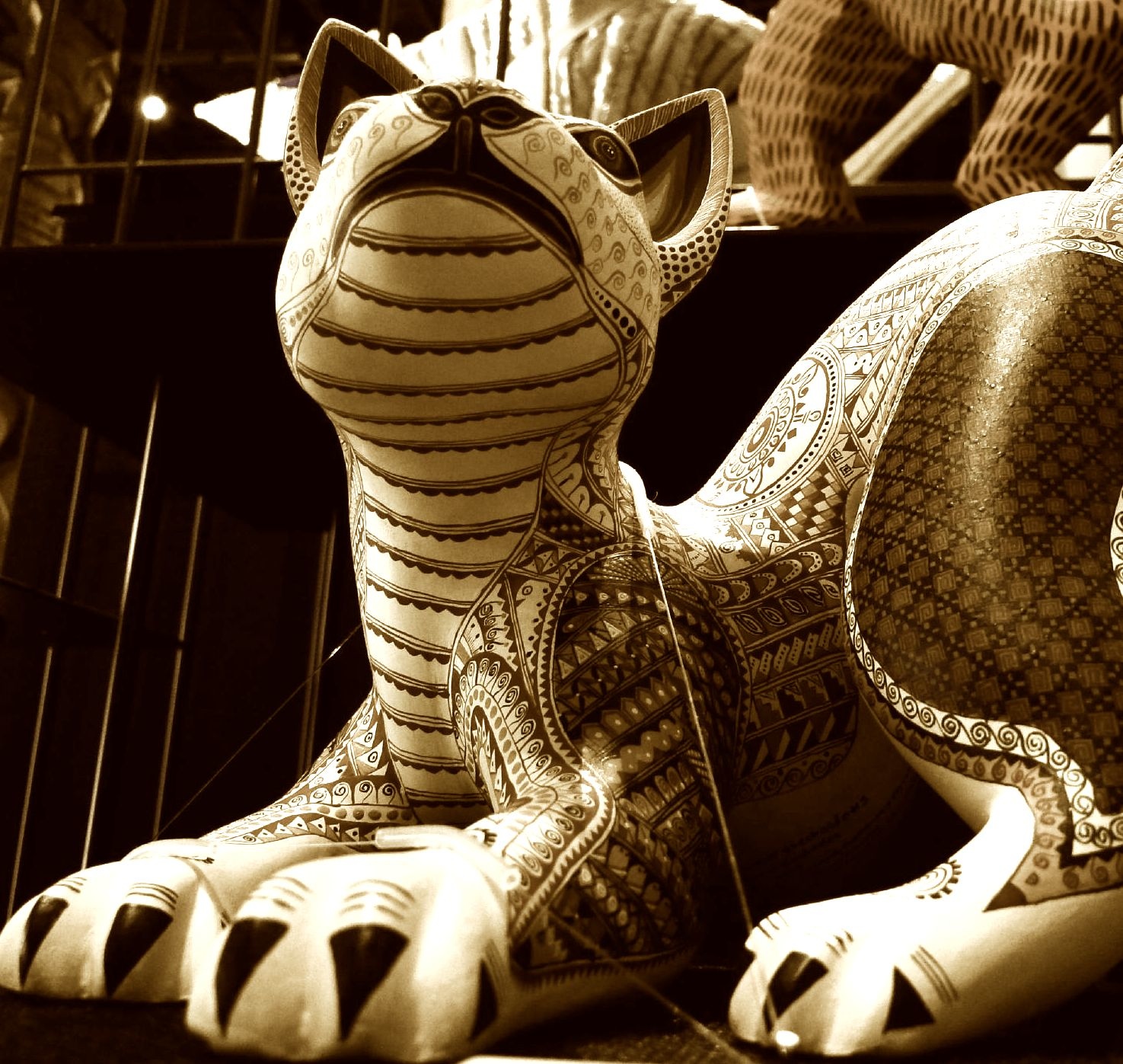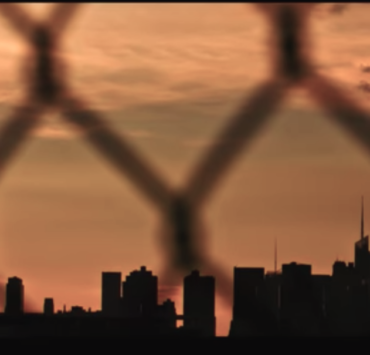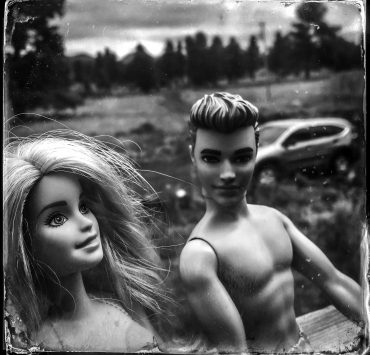
I first went to Immigration Court on Dolorosa Street in downtown San Antonio in July 2014 to cover the story of unaccompanied minors during that summer surge of border refugees from Central America. I witnessed a series of teenagers answering the judge’s scripted questions in fair and innocuous transactions. Today, though the border refugees keep coming, have kept coming, the tensions are thick with news of cruel treatment at detention centers, deported parents, “tender age” tent cities for babies and toddlers, cages inside warehouses full of children and teens. More recently, there has been talk at last of executive orders signed to keep families together. But they will be detained—together—and likely deported, or worse. The children who have not been reunited with families have creature comforts, perhaps, but those are just the ephemera of daily life–crayons, television, hamburgers.
There are also rules. There is to be no one to comfort them in this strange place, in the face of an uncertain future without their family.
I returned to Dolorosa Street again. Four years later, the situation for border refugees is more contentious—and perilous—than ever. In the small waiting room outside the courtroom, a teenager sat in the corner with a blanket over her head. The guard told her to remove the blanket. The girl obliged but then covered her face with her long waist-length hair, the startling sight of her softened by the little boy who toddled over to her and balanced himself by grabbing on to her knees. She held his hands there. A small girl, around three years old, stood right in front of me, smiled, said “Hi!” and extended her arms to signal wordlessly that she wanted a hug. When I was a toddler growing up on the border in Laredo, Texas, I’d sidle up to my mother. She would call me “gatita” and pull me up to her lap. With my head against her chest and my legs dangling off her lap, I was as rooted and safe as I’ve ever been. Imagine that tiny child in a jail on the border asking for a hug or comfort and being rejected. That wounded teen-aged girl with her silence and shield of long, black hair asks for comfort as loudly and obviously as a mistreated wailing baby in one of these cages in South Texas.
The business inside immigration court has not changed in the last four years. The same judge presides and issues the same questions, reviews loose pages from blue files, looks over his glasses at the next teen and the next one whose face does not betray anything, except a quiet dignity and determination to get through this process and escape the violence of his home country.
I have heard adult refugees in immigration court pleading for work permits. It seems they all want to work. They each carry the same look—a combination of poise and discomfort. This is not their turf—not this country, but neither is that other one. They are citizens of planet earth. For most of them, home is hard work. The daily goal is survival and making a meaningful life.
This is not a new story in the United States. But this story, in 2018, defies comparison and comprehension with its overt persecution—the stuff of loud, violent, vitriolic, viral videos and quiet, simmering, insidious disrespect. It feels like we are all in a collective nightmare, that recurring dream of paralysis, of feet cinder-block heavy, at the precise moment when we are being chased by something we perceive is both faceless and horrifying or the one where we must open our mouths to speak or scream and nothing comes out and the nightmarish images flash behind our closed, fluttering eyes.
The day before I revisited immigration court, I’d had a dream about Anthony Bourdain. My sorrow of late is colored by the stunning news of his death. He was appealing to me for all the reasons that everyone else has mentioned in their recollections about this tragic loss. He was irreverent, enigmatic, charismatic, funny, smart as hell, and, most of all, the poster boy of compassion who understood and never tired of reminding us that you have to get out there and meet people, swim in their lakes, climb their mountains, drink in their bars and coffee shops, eat in their kitchens, taste their food, walk in their shoes, and, most of all, listen to their stories. In the dream, Anthony Bourdain pulled a deflated raft through an expansive, arid cotton field in the dark of night. He kept saying in that unmistakable, deep, melodious voice, “I had to go… because of all of this.” In the dream, it made sense. In waking, somehow, it does, too.
I imagine the Twitter smack-downs Anthony Bourdain would be embroiled in if he were alive to see what is happening on the border, condemning the inaction and the over-reaction by turns. His storied love for Mexico and Latin America is well-known and started with his work as a young man in restaurant kitchens where, he often said, it was the undocumented immigrants who worked slavishly and took nothing for granted.
In a 2007 episode of “No Reservations,” Bourdain travels to the Texas/Mexico border. He traverses a good portion of it on a motorcycle. He stops along the way in Eagle Pass and floats along the Rio Grande on a boat with the mayor of the bordertown, the late Chad Foster, and a friend named Hugo. Mayor Foster points out the splendor of the river. Bourdain notes that the river is “so beautiful and unspoiled.” Mayor Foster exclaims in frustration, “It is! It is! And somebody wants to put a wall up?” It is a head-shaking moment. He adds that the “Rio Grande unites us to a great degree,” and the camera pans to a family picnic, children playing at the water’s edge. Hugo then says that he has relatives on both sides of that river—in Eagle Pass and in Piedras Negras, in the United States, and in Mexico. Bourdain smiles shyly and says, “Nice.” When Mayor Foster says that those who want to build the wall and spend billions of dollars don’t really know the border, Bourdain nods and says that the wall, first proposed under the Bush administration, is “One of the really great bad ideas.”
I try to imagine what he would say about this turn of events on the border today—the utter lack of concern for children traumatized in these circumstances of separation and incarceration. What would he say about the Flotus visiting the bordertown of McAllen, Texas on some unknown pretense, putting forth the appearance of a good faith gesture and this woman, a mother herself, an immigrant, visiting a detention center who dons a jacket with the words “I Really Don’t Care, Do U?” emblazoned on the back for the world to gawk at while she boards the plane to leave the border forever. She must know that this moment is a photo op with the attention of the world trained on her.
The speculation about the meaning of the words on the Zara-brand jacket snowballed. Potus weighed in with a Tweet, saying the cryptic message “refers to the Fake News Media.” With impunity, he vilifies the media and manages to wrench attention away again from the children in those detention centers. We settle in collectively to the enduring nightmare that won’t end, that takes another impossible turn, that leaves more questions than answers, that rejects coming to the table, that emboldens the extremists and returns us all to the nightmare visions. Another day, another tick mark checked on a cell wall.
When I left the courthouse that day, I walked through the Market Square on the way back to my truck. It is a Mercado that caters to tourists, people from other places warmly welcomed. Marco Antonio Solis’ “Tu Cárcel” blasted from the speakers along the cobblestone paths leading to restaurants and small shops featuring kitschy calavera tchotchkes, Frida T-shirts, Taxco silver, ceramic and paper maché alebrijes. Weary storekeepers swept the walk or leaned against doorways awaiting the throngs of tourists, hungover from last night’s margaritas, back again to haggle over things hecho-en-Mexico.
Through a window I saw a small paper maché feline alebrije, the phantom feelings of that baby girl’s cheek against mine when we hugged lingering still.
Image Credits: muzina_shanghai

Yvette Benavides is a professor of English and creative writing at Our Lady of the Lake University in San Antonio, Texas. She is a book critic for the San Antonio Express News and a contributor on Texas Public Radio.






